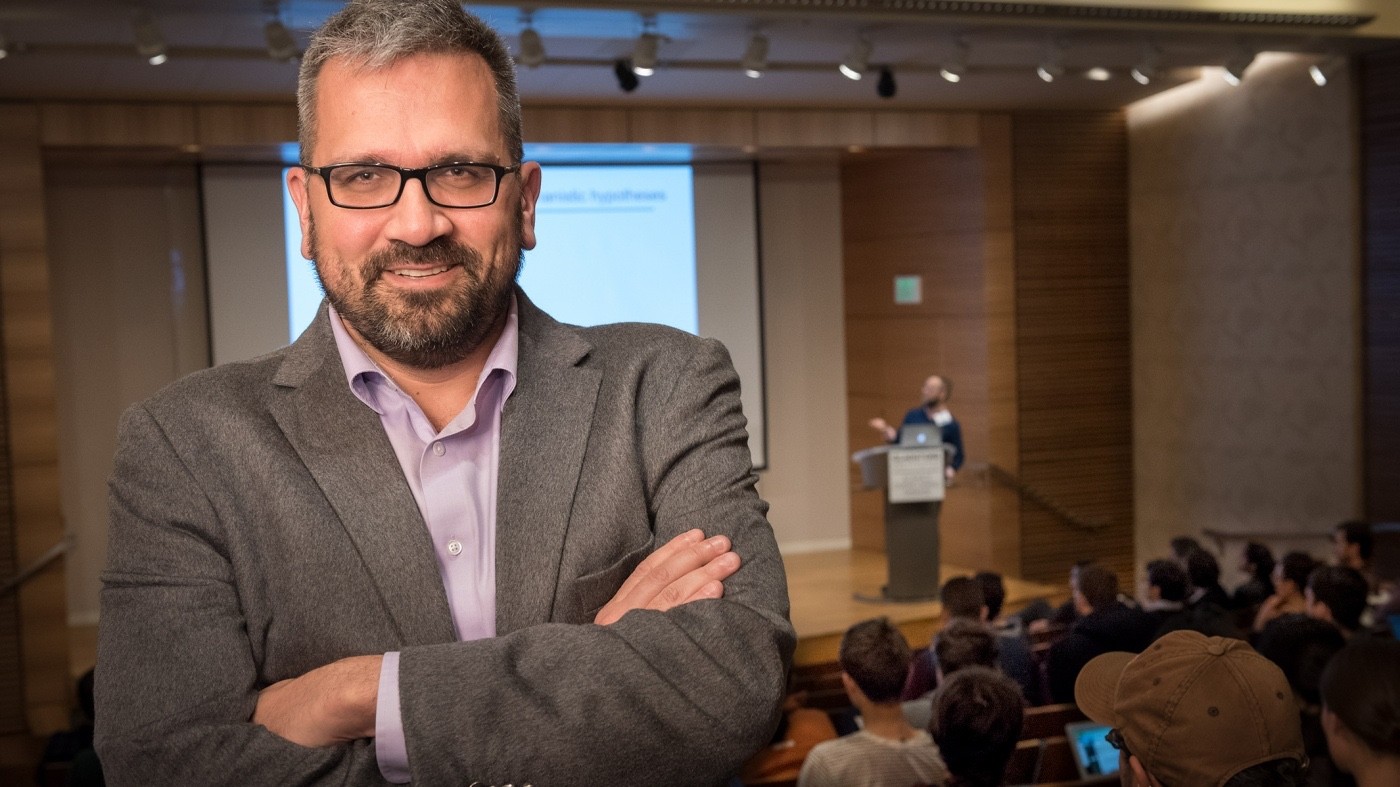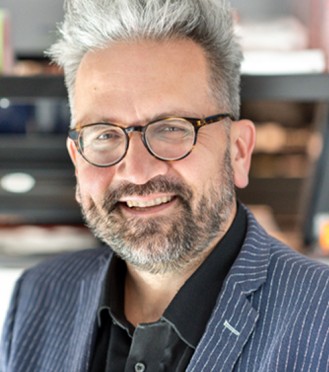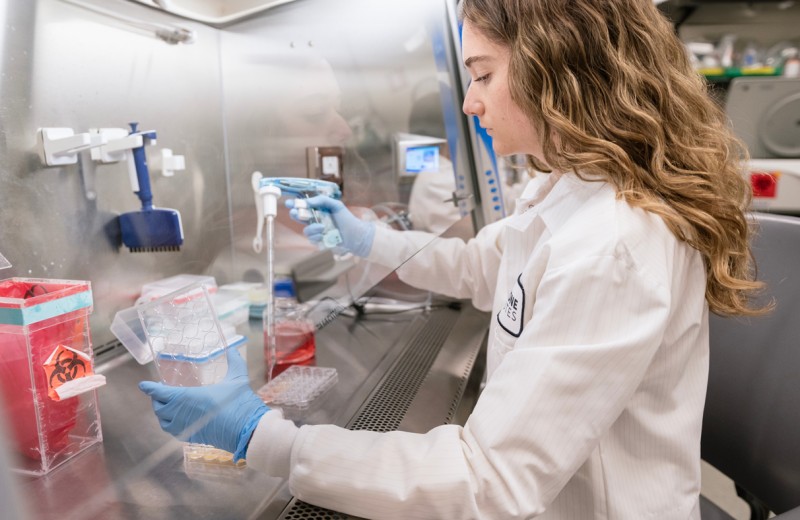Gladstone NOW: The Campaign Join Us on the Journey✕

Nevan Krogan, PhD, co-hosted another successful event that brought together diverse scientists to showcase valuable, cutting-edge tools that help answer unsolved questions in biology. [Photo: Chris Goodfellow, Gladstone Institutes]
Powerful new techniques are revolutionizing biological research and transforming biomedicine. To keep pace with those new technologies, the Gladstone Institutes hosted the 2017 Quantitative Biosciences Institute (QBI) Symposium on March 14 and 15. The event, entitled “Spring Mutations: How Deep Sequencing is Changing Protein Science,” was the first in a series of jointly hosted QBI and Gladstone symposia that will focus on cutting-edge research technologies.
The event hosted more than 150 scientists from around the country with unique expertise in methods to study genes, proteins, and enzymes. These methods include CRISPR technology, statistical analyses, microfluidics, next-generation sequencing, and systematic mapping.
“These symposia bring together scientists from multiple disciplines to highlight some of the valuable, cutting-edge tools that we can use to answer unsolved questions in biology,” shared Nevan Krogan, PhD, a senior investigator at Gladstone and director of the QBI. “They create an opportunity for scientists to explore new approaches, learn about different fields of research, and develop collaborative relationships.”
The symposium was co-organized by Krogan and James Fraser, PhD, an associate professor of bioengineering and therapeutic sciences at the University of California, San Francisco (UCSF). It was co-sponsored by the Convergence Zone at Gladstone, led by Katherine Pollard, PhD. This effort drives ground-breaking science through collaboration and innovation by bringing together scientific fields, ideas, and technologies to fuel creativity, create new approaches, and advance progress toward cures for devastating diseases.
QBI, an organized research unit within UCSF, also pursues transformative results in biomedicine. It supports quantitative research in biology by fostering collaborations that quantitatively address biomedical questions, with the confidence that unexpected discoveries in the basic sciences reveal solutions to many diseases.
“This event is an excellent example of the fruitful partnership between Gladstone’s Convergence Zone and QBI,” said Krogan, who is also a professor of cellular and molecular pharmacology at UCSF. “Both organizations seek to bring scientists of different disciplines together to find solutions to difficult problems. We are thrilled that this symposium provided that opportunity to our scientific colleagues.”
The speakers included UCSF researchers Adam Abate, Seemay Chou, Christian Cunningham, James Fraser, Martin Kampman, Tanja Kortemme, and Jim Wells. Experts from other national organizations included Sri Kosuri and Ren Sun (UCLA), Jesse Bloom (Fred Hutchinson Cancer Research Center), Dan Bolon (University of Massachusetts), Polly Fordyce (Stanford University), Doug Fowler (University of Washington/ Fred Hutchinson Cancer Research Center), Catherine Fox (University of Wisconsin, Madison), Cory Johannessen (Broad Institute), Debora Marks (Harvard Medical School), Lianet Noda-Garcia (The Weizmann Institute), Kim Reynolds (University of Texas, Southwestern Medical Center), and Lea Starita (University of Washington).
Featured Experts
Support Discovery Science
Your gift to Gladstone will allow our researchers to pursue high-quality science, focus on disease, and train the next generation of scientific thought leaders.
Could This Molecule Be ‘Checkmate’ for Coronaviruses?
Could This Molecule Be ‘Checkmate’ for Coronaviruses?
Scientists develop powerful drug candidates that could head off future coronavirus pandemics.
News Release Research (Publication) COVID-19 Infectious Disease Krogan Lab Ott LabUnderstanding How the Immune System Switches Between Rest and Action
Understanding How the Immune System Switches Between Rest and Action
Scientists at Gladstone and UCSF discover how one protein controls the behavior of immune cells, with potential applications for treating cancer and autoimmune conditions.
News Release Research (Publication) Autoimmune Diseases Cancer Genomic Immunology Krogan Lab Marson Lab CRISPR/Gene EditingFive Gladstone Scientists Ranked Among Most Highly Cited Researchers in the World
Five Gladstone Scientists Ranked Among Most Highly Cited Researchers in the World
The featured scientists include global leaders in gene editing, systems biology, AI, and immunology.
Awards News Release Doudna Lab Krogan Lab Marson Lab Pollard Lab Ye Lab




